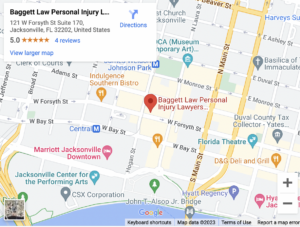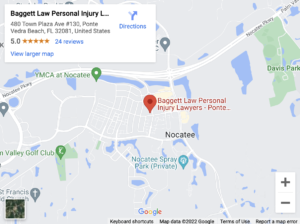
If you have suffered an injury, you may have heard the term maximum medical improvement (MMI). This phrase is used in personal injury and workers’ compensation claims to represent a simple idea.
Maximum medical improvement marks the point where doctors do not reasonably expect you to get better and can affect your injury claim in a variety of ways.
Definitions of Maximum Medical Improvement
Even though the idea of MMI seems simple, it has several legal and medical definitions, including:
Florida Workers’ Compensation Law
Florida defines MMI as the point where doctors do not reasonably anticipate that you will further recover from, or experience lasting improvement to, an injury or disease. To prove MMI, your doctor renders an opinion based on reasonable medical probability.
“Reasonable probability” does not mean “medical certainty.” Reasonable probability usually means “more likely than not.” If a doctor believes your most likely prognosis will match your current state, they can render an opinion that you have reached MMI.
This law only applies to MMI in workers’ compensation cases. Judges and juries in personal injury cases do not need to use this definition, but they will typically use a definition that captures the same concept.
U.S. Department of Labor Regulations
The U.S. Department of Labor has a definition of MMI that differs slightly from Florida’s definition. According to this definition, MMI is the time when the injury has stabilized. Stabilization happens when doctors believe your condition is unlikely to improve “with or without medical treatment.”
Under this definition, improvement is measured in two ways. First, you have reached MMI if medical treatment will probably not repair your body. Alternatively, MMI has also happened if your condition will probably not improve with additional time allowed for your body to heal.
American Medical Association Guidelines
The American Medical Association (AMA) provides a medical definition for its member doctors. This definition is the most restrictive of the three definitions.
Under the AMA definition, MMI happens when the injury has stabilized and will probably not change — either by improving or worsening — with or without medical treatment. Unlike the other two definitions, the AMA definition of MMI includes a lack of both improvement and worsening of an injury.
Examples of Maximum Medical Improvement
MMI can happen in a few contexts. You can hit MMI immediately after an accident if you suffer permanent injuries. Thus, your doctor can render an opinion that you have reached MMI relatively quickly if they had to amputate your arm after a workplace accident, for example.
In other cases, you might not reach MMI until after you have had time to heal from your injury. The healing time to reach MMI could take months or even years.
Suppose that you tore the cartilage in your knee in a car accident. Cartilage regrows very slowly, so you might not reach MMI for months. If you still suffer residual effects after your cartilage has time to heal, you have reached MMI with permanent disabilities in your knee.
How Maximum Medical Improvement Affects Your Claim
Ideally, you should always wait until you reach MMI before filing a claim in most cases. Once you hit MMI, you can pursue an injury claim that includes losses due to permanent disabilities.
Permanent disabilities might require ongoing physical therapy to prevent the effects from worsening. The resulting physical limitations can also force you to change jobs or retire from working. You could have significant future income losses due to your inability to work as you normally would.
At the same time, you cannot always wait until you hit MMI before filing a claim. Florida has a statute of limitations for both workers’ compensation (two years) and personal injury (either two or four years, based on when the accident occurred). If you file a claim after these time limits expire, your claim could get dismissed. As a result, you might need to file before a doctor can opine on MMI.
Your Lawyer and Maximum Medical Improvement
Your lawyer can help you balance your time limits for injury compensation against your timeline for either recovering or reaching MMI. When you hit MMI, the lawyer can also work with your doctor to render an opinion. This opinion will need to meet all the elements of MMI based on your type of case.
For example, in a personal injury case, your doctor will need to note that:
- You were examined
- The examination showed that you still experience the effects of your injury
- Your injury will probably not improve with additional healing time
- Additional medical treatment will probably not repair your injury
Your doctor will also need to testify about the opinion they rendered. During this testimony, the opposing attorney will get to cross-examine them. Your lawyer will help prepare your doctor for court.
Trust Our Jacksonville Personal Injury Lawyers
For our team at Bagget Law Personal Injury Lawyers, securing top results for accident victims is our highest priority. Contact us for a free consultation at (904) 396-1100 with an experienced Jacksonville personal injury attorney to discuss your injuries today.




